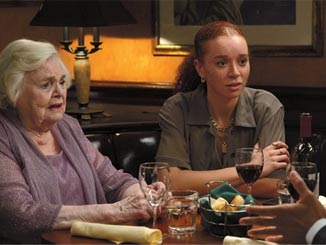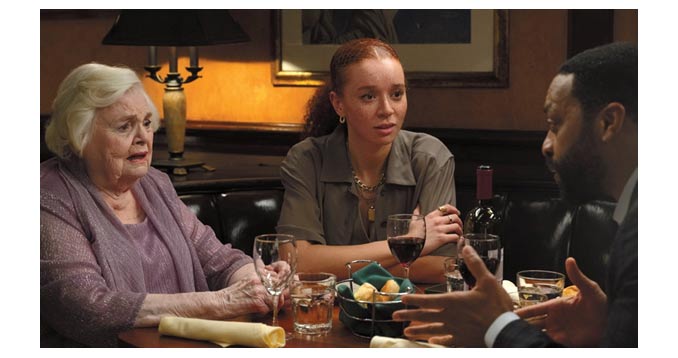

Scarlett Johansson’s feature directorial debut Eleanor the Great is about grief and acceptance. Eleanor the Great starring June Squibb, is a tale of friendship, aging, and identity.
Elderly Eleanor Morgenstein (Squibb) has been living with her best friend, Bessie (Rita Zohar), at a shared house in Florida since the death of her husband. Born in Iowa, but a resident of The Bronx for forty years. When Bessie suddenly passes away, Eleanor is forced to move back to Manhattan with her daughter (Jessica Hecht) and university age grandson (Will Price).
Suspicious that her daughter wants to put her in a home, Eleanor reluctantly tries to get out to the local Jewish community centre to keep busy. But instead of attending the choir rehearsals suggested by her daughter, Eleanor stumbles into a support group for Holocaust survivors. Eleanor has always had big feelings about the Holocaust, despite never having lived through it in Europe. But something compels Eleanor to tell a story of survival in that meeting. The story catches the ear and heart of Nina (Erin Kellyman), a journalism student and the daughter of Eleanor and Bessie’s favourite newscaster (Chiwetel Ejiofor). Nina, who recently lost her mother, wants to do a piece about Eleanor’s life, not knowing that the old woman has actually been sharing the story of her late best friend’s traumas.
Eleanor’s story is respectfully told and clearly in honour of someone who meant a lot to her. This is a story of how people are affected by vicarious trauma who are also struggling with their own trauma. It is story of being accepted and included having dealt with grief and loss.
In addition to being Johansson’s first feature behind the camera, Eleanor the Great is the first produced screenplay from writer Tory Kamen, with both delivering a simple, well told heartwarming story.
